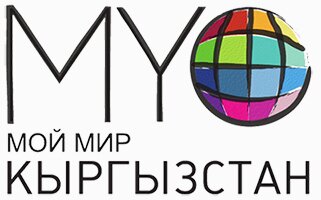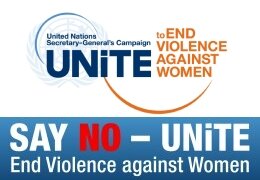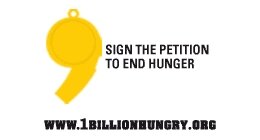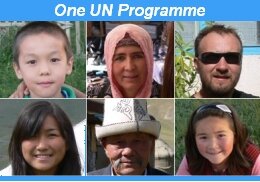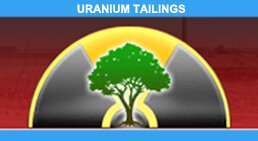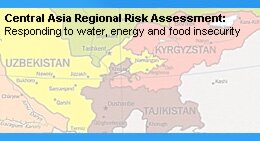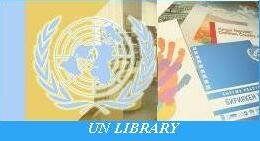| UNDAF/CDS/JCSS |
|
|
| Category: (Static pages) |
|
The United Nations Development Assistance Framework (UNDAF) is the result of an ongoing consultative process intended to analyze how the United Nations can most effectively respond to the Kyrgyz Republic’s national priorities and needs in a transitional context that has been affected by conflict. It is guided by the goals and targets of the Millennium Declaration, which has been endorsed by the Government and national programmes/plans, and by other rel¬evant documents, including strategic addresses by the President of the Kyrgyz Republic, the Government Programme approved by Jogorku Kenesh (Parliament) of the Kyrgyz Republic in December 2010, Action Plan “Economy and Security” to implement the Program of the Government of the Kyrgyz Republic endorsed by the Government in Janu¬ary 2011. The UNDAF translates these into a common operational framework for development activities upon which individual United Nations organizations will formulate their actions for the period 2012-2016. Peace and stability toward sustainable development represents the cornerstone for the UNDAF; under this overarching goal, three inter-related areas of cooperation have emerged as particularly critical for United Nations support to the people and Government of the Kyrgyz Republic during this five-year period: (1) Peace and Cohesion, Effective Democratic Governance, and Human Rights, including deepening State-building, security and justice for all; (2) Social Inclusion and Equity, encompassing issues of social protection, food security, education and health; and (3) Inclusive and Sustainable Job-Rich Growth for Poverty Reduction, with particular attention to women and youth, as well as to vulnerable groups and disaster-prone communities. In all three, the United Nations Country Team offers comparative advantages with regard to achieving further tangible progress toward the Millennium Development Goals, drawing on its values, successful global knowledge base, best practices and lessons learnt; its strong normative mandate and track record in the Kyrgyz Republic; its neutrality; and its ability to encourage efficient coordination and facilitate accountability among donors. The estimated financial resources required by the UNCT for its contribution to the achievement of each UNDAF Outcome are presented in the UNDAF Results Matrices in Annex A. These contributions include (1) the financial allocations by each participating United Nations organization, or direct resources; and (2) resources that organizations expect to mobilize during the UNDAF cycle in addition to their direct resources. The figures, while only indicative, are as accurate as possible at the time of the UNDAF drafting. Resource commitments will continue to be made only in Agency programme and project documents, according to the procedures and approval mechanisms of each Agency. The UNDAF budget will be reviewed and updated annually to reflect the different cycles of specialized and non-resident Agencies. The total anticipated resources to be mobilised in support of UNDAF strategies3 in the Kyrgyz Republic amounts to approximately US$ 186,099,262 million over a five-year period. About 27 percent of the total resources will be spent within the pillar of Peace and Cohesion, Effective Democratic Governance, and Human Rights ($50 954 937 million); 39 percent on Social Inclusion and Equity ($71,883,200 mil¬lion); and 34 percent on Inclusive and Sustainable Job-Rich Growth for Poverty Reduction ($63,261,125 million). This reflects both national development needs and UNCT priori¬ties in the Kyrgyz Republic, as well as provides for aligning United Nations cooperation with overall development assistance. 2009 - 2011 Progress In Implementation of UNDAF 2005-2011In 2009, the UN system has developed a One UN Programme 2010-2011 that contains a set of interventions/projects which expand current UN development assistance to address new developmental challenges, namely re-occurring energy and food insecurities. The One UN Programme will significantly reduce the severity of the impact of these challenges on the most vulnerable, while establishing the basis for sustainable and inclusive development in the period of the new Midterm Development Plan (2012-2014) and UNDAF (2012-2017). 2009 - 2011 Progress In Implementation of Joint Country Support Strategy (JCSS) 2007-2010 The UN was a founding partner of the JCSS, which now unites eight donors (DFID, WB, EU, Germany, SDC, IMF, and UN) to work together in key substantive areas to strengthen coherence of their developmental assistance. The JCSS presents a joint strategy of development partners to support the Government’s development agenda. It was formulated in the spirit of national and international commitments and initiatives on aid effectiveness, particularly the Rome Declaration on Aid Harmonization and the Paris Declaration on Aid Effectiveness. The JCSS is results-oriented, with a monitoring and evaluation framework derived from the Country Development Strategy which was in effect until 2010. 2010 was the last year of implementation of JCSS. The UN system took an active part 'as One' in the evaluation process of JCSS by independent firm Agulhas in 2010 that assisted JCSS partners to conceptualize future vision for JCSS. While the text of new JCSS is not yet formulated, all particiopating donors expressed the intention to continue JCSS or similar forum that will aim at strengthening coordination and coherence among their programmes and other types of assistance. Current JCSS |














